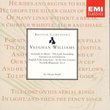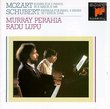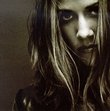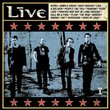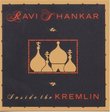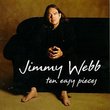| All Artists: Richard [1] Strauss, George Szell, Berlin Radio Symphony Orchestra, Robert Heger, London Symphony Orchestra, Elisabeth Schwarzkopf Title: Strauss: Four Last Songs/12 Orchestral Songs Members Wishing: 0 Total Copies: 0 Label: EMI Classics Original Release Date: 1/1/1969 Re-Release Date: 1/12/1999 Album Type: Original recording remastered Genres: Pop, Classical Styles: Vocal Pop, Opera & Classical Vocal, Historical Periods, Modern, 20th, & 21st Century, Symphonies Number of Discs: 1 SwapaCD Credits: 1 UPCs: 724356696020, 724356696051 |
Search - Richard [1] Strauss, George Szell, Berlin Radio Symphony Orchestra :: Strauss: Four Last Songs/12 Orchestral Songs
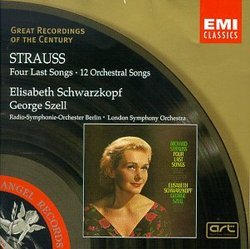 | Richard [1] Strauss, George Szell, Berlin Radio Symphony Orchestra Strauss: Four Last Songs/12 Orchestral Songs Genres: Pop, Classical
Elisabeth Schwarzkopf was one of those singers whom one either loves or hates. She was a "stylist," who inflected every phrase, every note in her urge to communicate what she considered to be the meaning of the text. Ot... more » |
Larger Image |
CD DetailsSynopsis
Amazon.com Elisabeth Schwarzkopf was one of those singers whom one either loves or hates. She was a "stylist," who inflected every phrase, every note in her urge to communicate what she considered to be the meaning of the text. Others feel that the only thing she communicated was her own need to impress people with her ability to communicate, and I believe she often forgot the difference between art and artfulness. Be that as it may, she was an outstanding Strauss singer, and her performance of the Four Last Songs, in particular, is legendary. Of course, having George Szell on the podium doesn't hurt either. He insures that the music shows the singer in the best possible light. --David Hurwitz Similarly Requested CDs
|
Member CD ReviewsReviewed on 12/18/2007... Maybe someday SACD will have a database that does justice to classic music and opera. Without this information, how can anyone select a recording?
(It usually just isn't worth the effort to do a web search everytime something comes up that looks like it might be interesting.) Here goes: Richard Strauss (1864-1949) Elisabeth Schwarzkoph, soprano Radio-Symphonie-Orchester Berlin (1-9) London Symphony Orchestra (10-16) George Szell, conductor The Selections: Four Last Songs 1.Fruhling 2. September 3. Beim Schlafengehen 4. Im Abendrot Twelve Lieder/Songs/Chansons 5. Muttertandelei, Op.43, No.2 6. Waldseligkeit, Op.49, No.1 7. Zueignung, Op.10, No.1 8. Freundliche Vision, Op.48, No.1 9. Die heiligen drei Konige, Op.56, No.6 10. Ruhe, meine Seele, Op.27, No.1 11. Meinem Kinde, Op.27, No.3 12. Wiegenlied, Op.41, No.1 13. Morgen, Op.27. No.4 Edith Peinemann, solo violin 14. Das Bachlein, Op.88, No.1 15. Das Rosenband, Op.36, No.1 16. Winterweihe, Op.48, No.4 CD ReviewsPoetic and autumnal cdsullivan@massed.net | Cambridge, MA USA | 10/29/2000 (4 out of 5 stars) "This recording of Strauss's Four Last Songs is superb - for the most part. It should be said that this will not please everyone; in a way, it does not please me. But there is no truly perfect recording of these songs, and this is unquestionably one of the best. Elisabeth Schwarzkopf was fifty when she made this recording in 1965, so her voice is not as beautiful as on, say, her 1951 Beethoven Nine with Furtwängler. HOWEVER: this is only noticable in two aspects of her singing: her lower register, which has grown somewhat harsh and brittle, and her breath control, probably the most serious disappointment in this set - some of Strauss's long, long, phrases (e.g. end of September) have to be reworded so she can fit in a breath. Also, her interpretation is controversial: I think that sometimes she focuses so much on the little details in each word that we actually lose the whole picture. I think, though, that this is more of a problem in the other songs on the disc, and this problem doesn't interfere with the Four Last Songs. So for the most part, this is an outstanding performance. She is slightly brittle at the start of "Frühling," but she quickly improves. In some of the soaring, radiant phrases towards the middle, we hear her real voice come through: silvery, luminescent and soft-toned. She characterizes "September" most movingly; she pays attention to word-coloring in a way other singers seem unable to do, which makes up for not having the breath control of a Janowitz or a Norman. "Beim Schlafengehen" is excellent, but again we note the lack of breath control. "Im Abendrot," though, is the crowning glory of this recording. She is in radiant voice, and brings out all the poignancy of this astounding song. This song alone is worth the price of the set. The twelve orchestral songs also on this disc are for the most part not up to this standard. Exceptions include a hushed "Waldseligkeit," a powerful "Zueignung" and a gorgeous "Morgen." George Szell's conducting is inspired throughout, as is the playing of the Berlin Radio Symphony Orchestra. The packaging is superb and the sound is excellent. But why put the Four Last Songs at the beginning of the disc? As the best songs Strauss ever wrote, shouldn't they be saved until the end of the disc? Many CD players, however, can re-order tracks, so this isn't too much of a problem. So of the three recordings of the Four Last Songs I have heard, here are my verdicts. Janowitz (Karajan/DG): heavenly, silvery singing, the most haunting recording. Occasionally, though, I feel her interpretation leaves stones unturned; her vibrato is also obtrusive at the top of her range; Karajan's accompinament is somewhat oily. Norman (Masur/Philips): the most gorgeous, unstrained singing, with astounding breath control. If only she and Masur hadn't decided to take "Im Abendrot" at a funereal pace! Schwarzkopf (Szell/EMI): not nearly as perfect vocally as the other two, but considerably better interpretatively, in addition to boasting the best conductor. So it all really depends on what you value most. If you want my advice, I suggest you buy all three! None of them is significantly "better" than the other, and their strengths and weaknesses complement each other. Pushed further, I would award the prize to Norman, for her gloriously rich, velvety singing. But you won't go wrong with Schwarzkopf." Schwarzkopf - the art of the Lied Herman D Soenario | Australia | 03/26/2000 (5 out of 5 stars) "I have owned this recording together with her first commercial recording of the Four Last Songs with Ackermann for many years. In order to fully appreciate the art of Schwarzkopf in Lieder and in particular the Four Last Songs, the listener must understand the full meaning of each of the German words and the way Strauss phrased it. We must remember that the words came first, then they were translated into music, as is the case in most of German Lieder. Like Fischer-Dieskau, Schwarzkopf clearly understands the importance of each of the words in relation to the verses. It is sad for the listener that ES and DFD are so severely critized regarding their emphasis on the text, and I believe this criticism comes mainly from English speaking listeners. I have 8 different interpretations on CD of the Four Last Songs, and am still convinced that ES in this recording is absolutely spot on. An absolute must! It is absolutely Glorious! Herman Soenario, Lecturer Musicology at James Cook University, Cairns, Queensland Australia."
|

 Track Listings (16) - Disc #1
Track Listings (16) - Disc #1